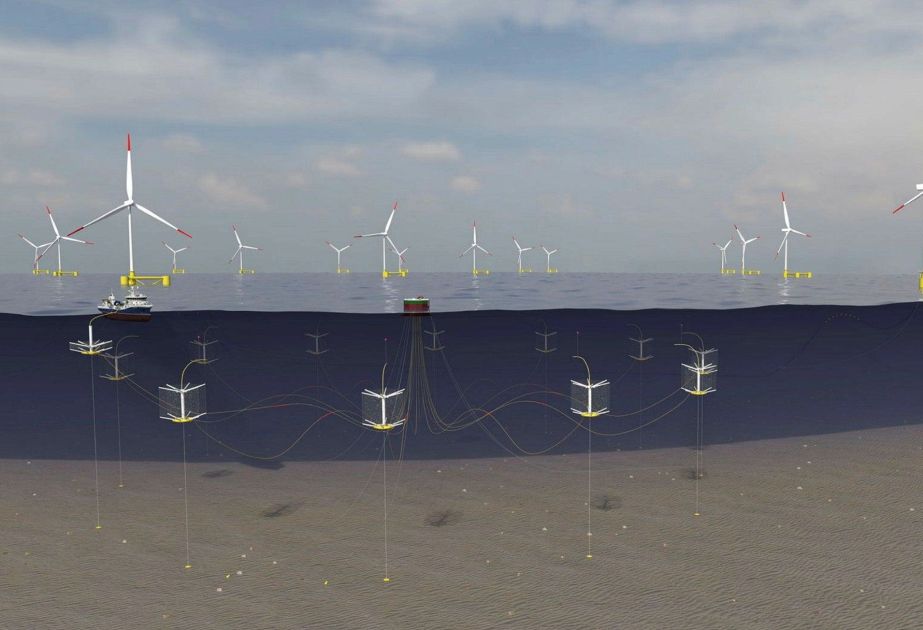By Alimat Aliyeva
Thanks to a groundbreaking project that combines offshore wind
energy production with fish farming, Sweden could not only fully
meet its domestic demand for salmon but also generate enough
electricity to power two million households,
Azernews reports.
The Norwegian-Swedish company Freja Offshore is spearheading the
Mareld project, a large-scale wind farm planned off the coast of
Bohuslen. Despite receiving positive recommendations from
authorities and boasting an impressive projected capacity of 12 TWh
per year, the project—like many other wind farms—is currently
facing economic challenges.
Investors, including major energy player Vattenfall, remain
cautious, as financial models have yet to guarantee
profitability.
One innovative solution to these challenges lies in the
integration of salmon farming with offshore wind infrastructure.
According to the Offwoff project report, sharing marine space for
both energy production and aquaculture could maximize resource
efficiency, while delivering environmental and economic
benefits.
Raising salmon in the cold, fast-flowing waters of the open sea
is expected to reduce disease risks and improve fish welfare.
Moreover, restricting commercial fishing activities in the wind
farm zone would help preserve the local marine ecosystem, creating
a healthier environment for aquatic life.
The Mareld project has the potential to create up to 2,000 jobs
and fully satisfy Sweden’s salmon demand. However, challenges
remain regarding insurance policies, reliable feed supply chains,
and effective coordination between sectors.
The government has yet to make a final decision on the project,
with investors closely monitoring ongoing debates around Sweden’s
future energy policy and regulatory framework.
This pioneering approach—blending renewable energy with
sustainable aquaculture—could become a model for coastal countries
worldwide, demonstrating how integrated marine industries can boost
food security and clean energy simultaneously.
